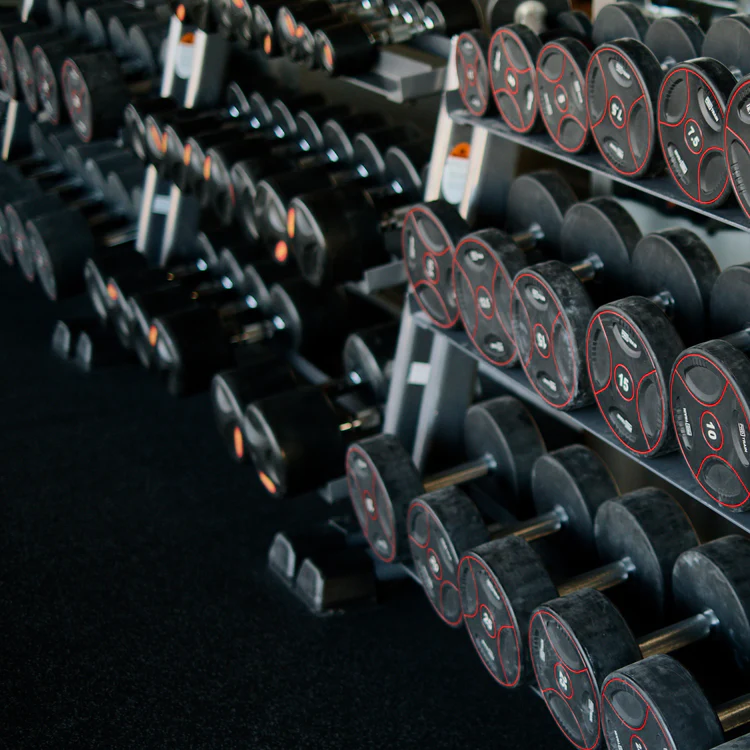Uncategorized
How to Choose the Best Dumbbells for Your Fitness Routine
When it comes to building strength, enhancing endurance, and toning your muscles, dumbbells are one of the most versatile and essential pieces of equipment you can have in your fitness routine. Whether you’re a beginner just starting your fitness journey or a seasoned athlete looking to take your training to the next level, choosing the right dumbbells can make all the difference. With so many types of dumbbells on the market, selecting the best pair for your needs can feel overwhelming. This guide will help you understand how to choose the best dumbbells for your fitness routine, considering factors such as weight, material, design, and overall functionality.
1. Determine Your Fitness Goals
Before purchasing dumbbells, it’s crucial to assess your fitness goals. Are you looking to build muscle, improve endurance, or simply tone your body? The type of exercises you plan to do will directly affect the kind of dumbbells you should choose.
- For Muscle Building: Heavier weights are ideal for strength training exercises like squats, deadlifts, and bench presses. Generally, a range of 8-20 kg per dumbbell will work well for most individuals aiming to build muscle mass.
- For Toning and Endurance: Lighter dumbbells are great for exercises such as lateral raises, bicep curls, and shoulder presses. They’re also perfect for high-repetition sets and circuit training.
- For General Fitness: If your goal is general fitness and you want to incorporate both light and heavy exercises into your routine, you may need a set that includes a range of weights.

2. Consider Dumbbell Weight
The weight of your dumbbells is one of the most important factors in choosing the right set for your needs. The general rule is to choose dumbbells that allow you to perform exercises with proper form but also challenge your muscles.
- Light Dumbbells (1-5 kg): These are ideal for beginners or those who want to focus on endurance training and muscle toning.
- Moderate Dumbbells (6-10 kg): These are perfect for those who are familiar with strength training and want to add resistance to their workouts.
- Heavy Dumbbells (11 kg and above): These are best for experienced lifters who are targeting muscle growth and strength.
If you’re unsure about what weight to start with, it’s a good idea to have a variety of dumbbells on hand or invest in adjustable dumbbells to accommodate different exercises and progress over time.
3. Look at the Dumbbell Material
Dumbbells come in various materials, each offering distinct advantages. When selecting the right dumbbell for your fitness routine, consider the material’s durability, grip, and comfort level.
- Cast Iron Dumbbells: These are the most common and affordable type. They’re durable, but can be harder on the hands, so it’s important to use proper grip techniques.
- Rubber-Coated Dumbbells: Rubber-coated dumbbells offer a more comfortable grip and help protect your floors from damage. These are a popular choice for home gyms due to their quiet usage and protective coating.
- Vinyl Dumbbells: Often seen in lighter weights, vinyl-coated dumbbells are soft and comfortable to handle. They are typically used for lighter strength training or aerobic exercises.
- Adjustable Dumbbells: If space and budget are limited, adjustable dumbbells are a great option. They allow you to change the weight by adding or removing plates, making them highly versatile and ideal for those who want to save space without compromising on the weight range.

4. Check the Dumbbell Grip
A secure and comfortable grip is vital for effective training. The right grip ensures you have control over the dumbbells, which prevents accidents and helps you perform your exercises safely.
- Textured or Knurled Grip: A knurled grip provides extra traction, making it easier to hold the dumbbells even when your hands are sweaty. This is commonly found on heavier cast iron dumbbells.
- Ergonomic Grip: For added comfort, some dumbbells come with ergonomic or contoured grips, which reduce the strain on your wrists and hands during extended use.
- Soft Grip: If you prefer a gentler feel, look for dumbbells with a soft, cushioned grip (often made of foam or rubber), which is commonly found in lighter vinyl or neoprene options.
5. Decide on Dumbbell Shape and Design
Dumbbells come in various shapes and designs, which can affect their usability and storage. Consider these design options when selecting the right set for your fitness routine:
- Hex Dumbbells: Hexagonal dumbbells are a popular choice for most gym-goers because they have flat edges that prevent them from rolling when placed on the ground. This makes them perfect for home gyms where space and safety are a concern.
- Round Dumbbells: While they may look sleek, round dumbbells can roll when not in use. These are typically found in commercial gyms but may not be the best option for home use.
- Neoprene Dumbbells: Typically lighter in weight, neoprene dumbbells are often used in group fitness classes. They’re easy to grip and less likely to cause damage to floors.
- Adjustable Dumbbells: These are perfect for those who want to have multiple weight options in one compact set. They’re especially useful for home gyms with limited space.
6. Evaluate Dumbbell Storage and Space Requirements
If you’re working out in a small space, it’s essential to think about how you’ll store your dumbbells. Dumbbell racks are an excellent investment if you have several pairs or a collection of adjustable dumbbells. For those with limited storage space, compact adjustable dumbbells are a space-saving solution.
7. Budget and Durability
While it may be tempting to choose the cheapest option, remember that dumbbells are an investment in your fitness. You want a set that will last for years and withstand the wear and tear of your training sessions.
- Higher-end Dumbbells: These tend to be more durable and have better grips. Brands like Bowflex, PowerBlock, and IronMaster offer adjustable dumbbells that are popular among fitness enthusiasts.
- Budget Dumbbells: While affordable, these may not last as long, and their grip and comfort may not be as high quality as premium options. However, for light use or beginners, they may be perfectly suitable.
8. Review Customer Reviews and Recommendations
Before making a purchase, take the time to read customer reviews and recommendations. These can provide valuable insights into the durability, comfort, and performance of different dumbbells. You can find reviews on fitness equipment websites, forums, and social media platforms.
Conclusion
Choosing the best dumbbells for your fitness routine ultimately depends on your goals, experience level, and the space available in your home gym. By considering factors such as weight, material, grip, design, and budget, you’ll be able to select a pair of dumbbells that will help you meet your fitness goals. Whether you’re building strength, improving endurance, or toning your muscles, the right dumbbells can make your workouts more effective and enjoyable. Invest wisely, and watch your fitness routine evolve with the right equipment!


